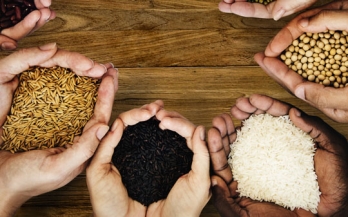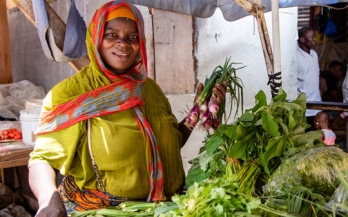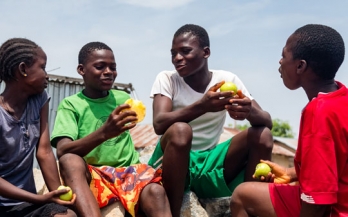The UN Food and Agriculture Organisation estimates there will be up to 13.1 million more chronically undernourished people in the next year due to the war, while the World Food Programme predicts that between 33-47 million people will face acute food insecurity.
The Global Health 50/50 Gender and Health Index 2022, a barometer of institutional performance around gender and governance is launched today. The Gender and Health Index assesses the gender-related policies and practices of 200 global organisations that aim to promote health and/or influence global health agendas and policy.
The war in Ukraine has brought into sharp relief how tenuous some of the staple foods we take for granted can vanish. The situation is dire and threatens world’s food security, with many GAIN countries directly affected.
The war in Ukraine is a catastrophe for that country and for the world. The loss of food production and exports from Ukraine (and to some extent Russia) will push world food prices up as the lack of supply fails to meet demand. High energy prices due to the loss of production, trade and the sanctions imposed will do the same, making food production, distribution and preparation more costly. Higher food and fuel prices will lower people’s income for other necessities such as clean water, sanitation and health care.
2022 marks a decisive action year for scaling up and accelerating the implementation of robust, context specific efforts to eradicate hunger and increase accessibility of safe, nutritious foods for all people, whilst remaining within key Earth’s systems thresholds like climate change and biodiversity loss.
N3F is an impact-first fund which will use a blended finance structure offering three types of shares to attract investors with different appetites for risk. Notably, the fund will have a catalytic tranche that will act as a first loss component, a powerful method of moderating risk and, thus, of catalysing more risk-averse sources of capital.
Over the holiday period the nutrition community - and the world - lost a powerful champion: Dr. Ferew Lemma. This is our abiding memory of Ferew: calm in a crisis, but passionate about improving people’s lives; still when listening, but restless to find solutions; quiet in meetings, but forceful when it comes to implementing decisions.
The two-day Tokyo Nutrition for Growth Summit 2021 kicked off today with commitments made by leaders of governments, companies, international organizations, the United Nations, civil society organizations, and others. Key among them was the high-level commitment made by Google in the area of GAIN’s workforce nutrition.
The Global Alliance for Improved Nutrition (GAIN) commits to support these goals by improving access to nutritious and safe foods in a sustainable way. We will register two major commitments in the Nutrition Accountability Framework in relation to improving diet quality for millions of people around the world.
That goal was to identify ways that businesses large and small could support efforts to tackle all forms of malnutrition, recognizing that most of the core underlying problems of malnutrition can never be addressed without actions by those that grow, manufacture, distribute and market food to consumers.










